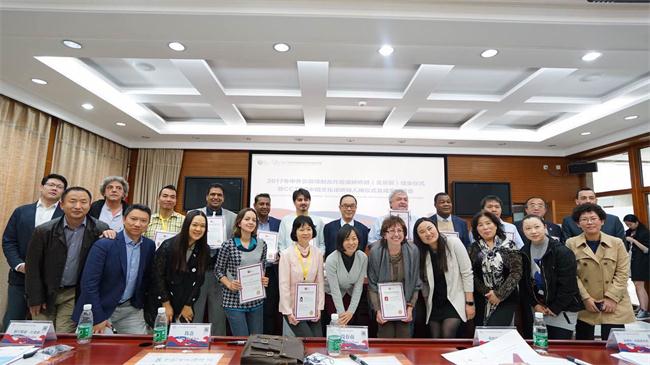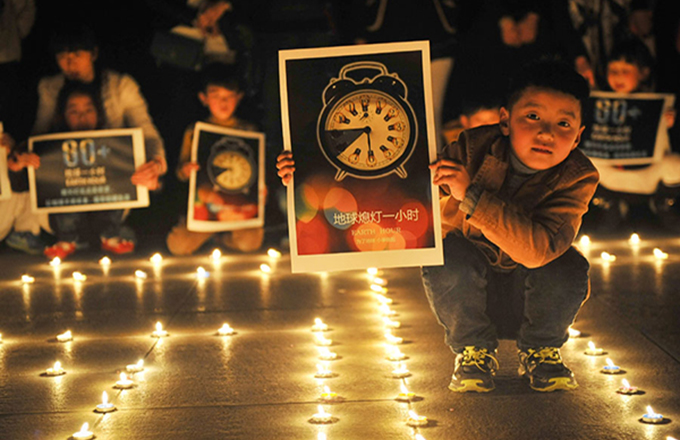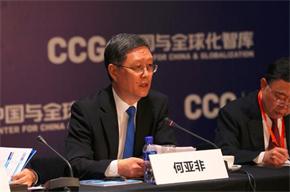Chinese films set sail to find new opportunities abroad
 |
|
CCTSS members and other delegates take a photo together in Beijing Language and Culture University on April 21. [Photo provided to chinadaily.com.cn] |
The closing ceremony of 2017 Sino-Foreign Audiovisual Translation and Dubbing Beijing Cooperation Workshop and outcome dialogue was held in Beijing on April 21, 2017.
Themed "Translating Movies, Sharing Cultures", the Beijing workshop was held from April 17 to April 21. The workshop included cultural forums, Sino-foreign storytelling salon and roadshow theatrical release, featuring in-depth discussions and communications on the promotion of audiovisual translation and mutual study on film and TV production between China and other countries.
The workshop attracted more than 20 foreign delegates including artistic directors, head of the television agencies and senior translators from 22 countries. Also, more than 30 Chinese professionals and film & TV arts talents joined the discussions.
Associate professor Xu Baofeng, CCTSS executive director, said:"The workshop is an innovative program to promote more magnificent Chinese culture across the world. Since 2015, we have launched two programs, which were both a big success. Through discussion and information sharing on firm and TV translation and dubbing between China and other countries, China's dubbing techniques and can be better promoted and reach international standards, maybe more global viewers will prefer watching Chinese dubbed works."
"Despite the cultural shock and language differences, our inner needs and cultural aspirations are similar. Nice cultural works will resonate with viewers all around the world, it's more like a deep heart-to-heart exchange, so they shouldn't be abided in certain countries. Continuous communications and in-depth dialogues can break the barriers of culture and language differences," said Jiang Haoshu, director of the Translation Branch, Bureau of External Relations, Ministry of Culture.
Jiang also noted that audiovisual translation and dubbing have played an important role when Chinese culture "goes out".
"Our university will help to engage more people who are interested in Chinese culture in film and TV translation and dubbing. And during this event, BLCU will launch the 'Global Platform of Sino-Foreign Audiovisual Translation and Dubbing'," Qi added.
Huang Zhuoyue, director of research center for CCTSS, Beijing Language and Culture University (BLCU), also expressed his support for the workshop. "Our university will help to engage more expats who are interested in Chinese culture in film and TV translation and dubbing."
During the five-day workshop, many foreign translators and professionals had a more thorough understanding of Chinese firm industry. Some of them expressed their gratitude for the workshop at the ceremony.
Masako Inoue, founder of Panda, a Chinese-language translation company, said "Through the five-day workshop, I discovered that translation has a huge potential in Chinese film industry. I have decided to translate some of the movies into Japanese by myself and take them to my country."
Delegations from other countries also introduced themselves and highlighted the Chinese films and TV series that they like. And they also noted that Chinese films and TV are very popular in their countries.
During the dialogue, some Chinese director and president of Culture media companies also mentioned that there was more room for improvement when it comes to getting Chinese works overseas.
"Which works are suitable for export is also something that needs to be seriously considered. Also China needs to consider the conditions of the receiving country when exporting its works, including its culture, religion, and traditions," Zhang Shufang, president of China Broadcasting Media, said.



















